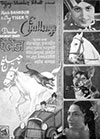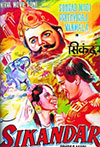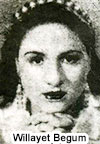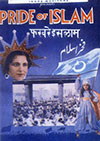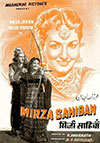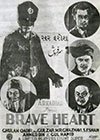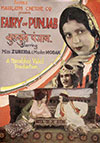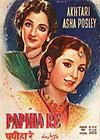Description
This film was released on August 7th, 1974. It limped its way to a silver jubilee and became a losing proposition. Yet, it remains a fine example of Nazar-ul-Islam's work. Mr. Islam was the premier director of Pakistan's cinematic golden age. His keen eye and unsparing humanity is on full display here. He was the only lyricist among the hacks, a cinematic poet among the celluloid quacks. This unusual story about a prostitute and a petty thief, in a futile search for respectability, seems as relevant now as it did over twenty-seven years ago.
Made at the peak of their popularity, Shabnam and Nadeem came together once again, for this funny and acrid commentary on bourgeoisie hypocrisy. Within the confines of romantic genre, director Nazar-ul-Islam creates a biting indictment of conventional morality and the society's obsession with respectability ("sharafat"). The story's ironic bend pierces through the hypocrisy of conventional respectably even as its two leads covet it desperately.
The Story
The film is at its surrealistic best during the first act, as Mr. Islam subverts conventional structure of an Urdu film. He begins at the end. Ten minutes into the beginning the leads are married to each other. The marriage is an accident and this twist sustains rest of the film. The key is that neither the bride nor the groom get to see what the other one looks like. Sajen (Nadeem) is a petty thief trying to make a getaway. He walks right into a wedding with a missing groom. Sajen hides behind the "sahera" and ends up marrying the orphaned girl, Neelam (Shabnam), only to tell her minutes later that it was all a mistake. He climbs out the window of their wedding suite leaving a devastated bride. It is subsequently revealed that the real groom died in a car accident the same night. Neelam is thrown out for bringing bad luck to the family. The police catch up with Sajen and he lands in jail.
The second act begins with Sajen's release from the jail. Meanwhile, despite having made it to a khota, Neelam clings to her "Izzat". The film is vague on the extent of her involvement in the trade, but the way Iliays Kashmir (as a "sharif/badmaash") leers at her throughout the proceedings, it seems he is expecting more than her "thumkas." Sajen and Neelam's paths cross again. This time he is running from the police and takes refuge in her Khota. They end up falling in love, unaware that they are already married to each other. In their post-nuptial courtship Neelam convinces Sajen that abject poverty is not too high a price to pay for respectability ("sharafat"). She leaves the business and he the life of crime to become "Sharif Loag". In an artsy shack they begin their new respectable life. Unfortunately the society refuses to forgive or to forget thus dampening their formidable enthusiasm. The more they try, the more "sharafat" eludes them. In trying to clear their name and avoid further degradation they end up committing a murder. The irony of this conundrum is the heart of this film.
Acting
Shabnam is poised and brilliant as the woman who longs to escape her fate. Neelam is the most dignified "twaif" in the Pakistani cinema's history. With her haunting Urdu accent, delivered with a quivering vulnerability, Neelam manages to seduce Sajen even as she continues her struggle to protect "her honor" in the oldest profession. Sajen is transformed by her love from a cynical petty thief to a loving, proud man. The transformation is a tour de force for Nadeem. The sexual chemistry between the two stars keeps the film alive. This chemistry is a reminder of what made them the leading icons of Pakistani Cinema during its most fertile period.
Along the way there are some excellent supporting performances. Qavi is perfect as the charming, loveable drunk. He manages to breathe real life into what could have been a stock character. Allaudin is appropriately dignified as an idealist Judge. Ilyas Kashmiri plays the pervert to perfection. His presence evokes instant repulsion, making his performance a smashing success.
Design, Music and Cinematography
Islam Shahabi set designs are funky, theatrical and occasionally over the top. His subterranean dwelling for the homeless is attractive but hopelessly romanticized. Robin Ghosh scores big here with Mehdi Hussan's classic, "tere bheegae badan ke khusboo se...". Afzal Chaudry's Cinematography has a definite edge. Most shots have strong compositions. The Ocean for once appears expansive and beautiful, not over exposed, as it is so often in Pakistani films. The irony of Neelam landing in a khota while trying to save her "honor" from a bunch of crazed hoodlums is beautifully evoked by a classic dissolve. Neelam takes refuge in the Khota, and walks right into the Naika (Meena Dawood)'s trap; an empty birdcage rotates feverishly in the foreground. As Neelam is trapped, a dissolve leads to a bird inside the cage.
Direction by Nazrul Islam
Mr. Islam's direction is flawless in "Sharafat". Instead of rooting for conventional morality, as is the impulse for most Pakistani film directors, Mr. Islam reveals the hypocrisy inherent in respectability. His compassion for the hapless heroine is palpable. Mr. Islam went on to direct career defining film "Aina", along with numerous other hits "Zindigi", "Amber", interesting failures "Shishe ka Ghar" and routine drivel "Haseena Maan Jaigee". Mr. Islam's work is an exception in the Pakistani Films of his era. In contrast to western films, the sub-continent films of the past and present are often about filming a spectacle. This is why even routing human actions are portrayed with such hyperbole. Mr. Islam did not film spectacles, his films were the spectacle. His films did not subscribe to the staged theatricality, which has always been ubiquitous in the Indo-Pak cinema. The narrative in his films was always logical and the characters were never caricatures.
If you ever come across this gem, do not pass on it.
This article was written by Dr. Masood Haque from New York, USA and first was published on January 5, 2003.


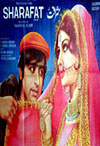





















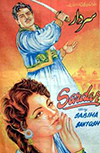
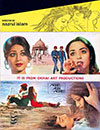
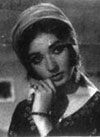
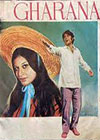
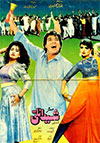
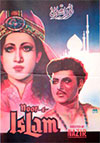
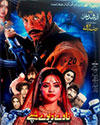
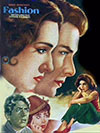
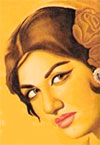
 Parvez Malik
Parvez Malik Iqbal Bano
Iqbal Bano Nayyara Noor
Nayyara Noor Habib Jalib
Habib Jalib Shehnshah Hussain
Shehnshah Hussain Shaukat Hussain Rizvi
Shaukat Hussain Rizvi Fatima Surayya Bajia
Fatima Surayya Bajia Nargis
Nargis Sohail
Sohail Hafiz Atta Muhammad
Hafiz Atta Muhammad Chandni
Chandni Faisal Munawar Zarif
Faisal Munawar Zarif Shakeel
Shakeel